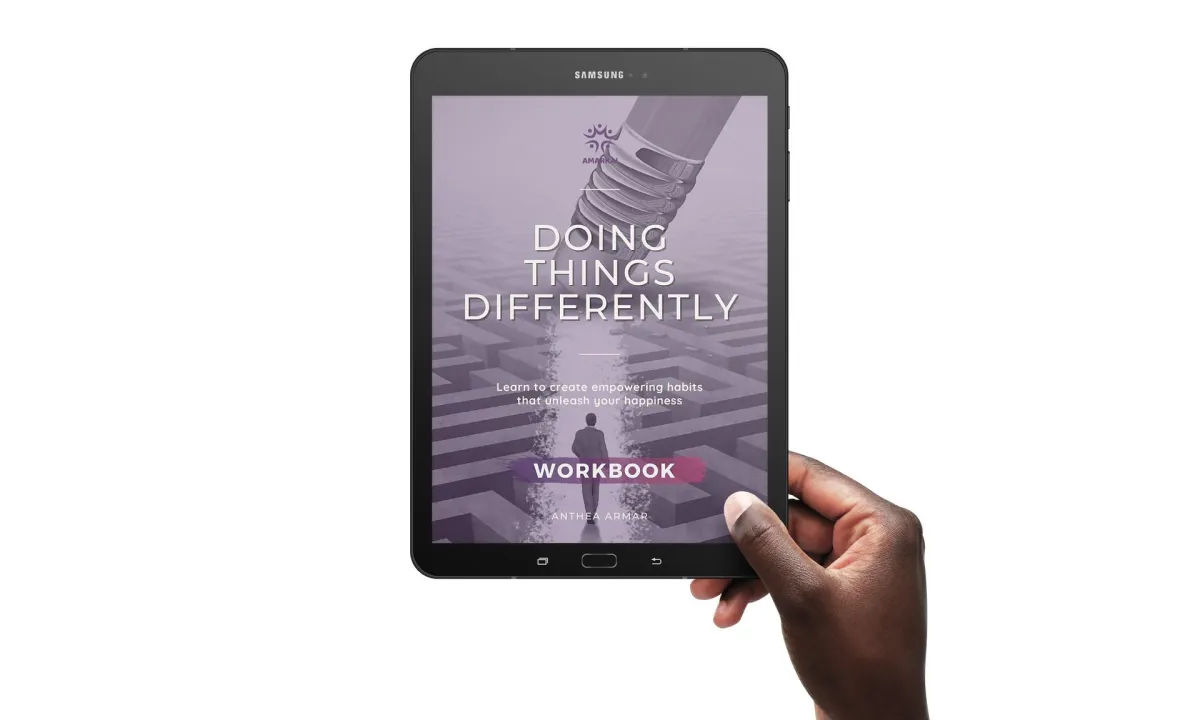STOP PROCRASTINATING TODAY
10 Tips for Overcoming Procrastination Today
…so you can stop feeling overwhelmed and start feeling focused!
Author: Anthea Armar
Date Published: 7 April 2022
Topics: Procrastination, Overwhelm, Stress, Anxiety, Fear
The fact is, every single one of us procrastinates or has procrastinated at some time or another. Procrastination can add an element of excitement and motivation to a project or activity by making you rush against a deadline. Some people truly work better under this type of pressure. But if procrastination is just another way that you tend to self-sabotage, it’s a bad habit that serves no positive purpose in your life! It is best to just try to get rid of procrastination altogether.

Image Source: Brett Jordan (Unsplash)
There are many different methods and techniques that people use to end procrastination, but remember that since procrastination is a habit, changing that habit and replacing it with more positive habits takes time. Consistency is the key here, as consistently practicing the new habits will lead to them being the preferred choice when you have a decision to make - to procrastinate or not to procrastinate.
"I am actively working on my dreams in reality, not in thought."
Chronic procrastination can cause all kinds of problems in both your personal and your professional life.
Imagine how your spouse feels when they’ve been hoping that you’ll do something that needs to be done, but you don’t do it. And how about the fights that happen because they go and do whatever it is themselves?
At work, maybe there’s a project you’re working on that needs to be wrapped up, but because you fear you’re not knowledgeable enough, you continue to put it off until there is simply no way that you can complete it. Procrastination causes you to feel guilty, worried, fearful and stressed. And, it is a choice you make.
How you can overcome procrastination and get things done
Considering that procrastination is a choice, subconscious or otherwise, decide what new choices you can make on a daily basis to adopt any of the ten tips below to get more focused on completion, rather than avoidance.
1. Write it down

Image Source: Aaron Burden (Unsplash)
Out of sight is out of mind. When you think about what needs doing, it’s less like to take place because you haven’t made any commitments to it.
Make a list of everything that you need to do, with a realistic deadline, so you can tackle each item in order of priority, not preference.
By seeing a reduction of tasks that need to be completed, you will feel a sense of achievement and also be less distracted by things that just ‘crop up’, but are probably of low priority.
2. Identify the root of your procrastination
You may be procrastinating and have absolutely no idea why. The reason differs for everyone, but what’s the reason why you aren’t taking action?
Consider whether your procrastination stems from fear, anger, sadness or resistance. It could be that the task is not aligned to your core values because it’s something you’re expected to do, but don’t want to. It could be you have a fear of failure or are just feeling overwhelmed by the amount you have to do.
Whatever it is for you, find out. It’ll help you deal with the root cause and allow you to tackle what needs doing, rather than sit in the emotion of doing it.

Image Source: Zach Lucero (Unsplash)
3. Stay accountable

Image Source: krakenimages (Unsplash)
If what you would like to do is quite a big task, like start a business, make money online, buy a house, travel the world or get married, you may see the number of things you have to do and be put off.
There may be other people you know who may want to achieve similar goals, so why not ask them to be your accountability partner? You will be able to keep each other on track, learn together, talk to about any challenges and stay motivated.
Knowing you have someone to report to about your progress also helps to keep you focused.
4. Break it down
Instead of looking at the big end result, consider all of the small steps or actions it will take in order to achieve it. That helps to make the task a lot more manageable, and digestible!
When you are able to see the smaller tasks that need to be completed, you are able to stay focused a lot easier and also see the progress you are making each time you tick one off the list.

Image Source: Brands&People (Unsplash)
5. Reward yourself

Image Source: Fauzan Saari (Unsplash)
What helps you stay motivated? These can be used as milestone rewards for your progress. By identifying several rewards that you could access when you complete a task by a specific date, it helps to encourage you to stop procrastinating and get things done.
It also helps you to see tasks as positive and rewarding, rather than whatever current emotion you may be associating with them. This will retrain your brain and you will find, over time, that the resistance for taking action reduces.
6. Expect the unexpected
Just because you are motivated to complete a task, that does not mean it won’t come with its own set of challenges. Have a look at the activities you are due to complete and identify what things could possibly go wrong.
This might include you procrastinating!
Being prepared for these challenges and having solutions in place before they happen, mean that you won’t get overwhelmed trying to find solutions in the midst of the problem.

Image Source: charlesdeluvio (Unsplash)
7. Exchange negative for positive

Image Source: Amanda Jones (Unsplash)
When you look at the activities you need to complete, analyse your thoughts. Pick out the negative thoughts and actively replace them with something more positive.
It is usually the thoughts you have that prevent you taking the action.
If you can replace those negative thoughts with positive thoughts that encourage you to keep working at completing your tasks, you are more likely to achieve more.
8. Surround yourself with inspiration
Whether it is your work environment, one of your positive and successful friends or a particular song, there are many ways you can gain inspiration.
When you feel inspired, you are more likely to take action and strive to achieve what you set out to do.
Your behaviour can be positively influenced to motivate you in your day to day habits.

Image Source: Christina @ wocintechchat.com (Unsplash)
9. Challenge your perfectionism

Image Source: Anastase Maragos (Unsplash)
You may think perfectionism makes you do a better job, but it’s far more likely that you overcomplicate and overthink your tasks so that they’re never really complete.
Perfection is subjective.
Spending all that extra time making something ‘perfect’, that may never be seen in that way by others, prevents you from utilising that time on completing more of your tasks.
You can accomplish much more when you lose the need to do everything perfectly.
10. Give yourself permission to feel good
Every day you achieve something, you should feel good about it.
The old version of you who procrastinated and got everything done at the last minute and then was overwhelmed with stress and guilt would envy the progress you are making now.
Even when you don’t get everything done, as long as you got something done, you’re making progress. Be easier on yourself. Give yourself permission to acknowledge the positive progress you are making and it will make you want to achieve more.

Image Source: Usman Yousaf (Unsplash)
"Want to see progress? Under think and over act."
Your Procrastination Free Checklist
Delaying activities delays your ability to experience the results they would have provided. Consider how you can take these ten steps to reduce overwhelm and take more action, which will allow you to achieve the things you want to:
- Write it down - list all tasks and tackle them one by one, with intense focus, until you begin to see a reduction in the number of things on your list. Just crossing things off of a to-do list can be incredibly motivating. It’s a visual reminder that you really got to work and did what you were supposed to do.
- Identify the root of your procrastination - your reasons for procrastinating may run deep, even back to childhood, so examine these feelings closely. Doing something physically dramatic will get rid of the pent-up emotion and make it easier for you to move forward, unencumbered by that emotion.
- Stay accountable - having someone to be accountable to will help you stay on track, stay motivated, and work out problems when you come up against road blocks. It also helps if you have different skill sets, so you can learn techniques from each other for things you may not already know how to do.
- Break it down - it’s much easier to stay focused on small tasks than enormous goals, so breaking down your project will allow you to get much more done.
- Reward yourself - list five things you would love to reward yourself with and attach them to a task. Identify the timeline for which the task needs to be completed and only give yourself the reward if you achieve it in time.
- Expect the unexpected - for each task, list out what could go wrong. Then list out what you will do to counter or resolve each of those things, so you already have a contingency plan in place in advance.
- Exchange negative for positive - write out the negative thoughts you have about each task. Draw a line through them and replace with a positive thought that will motivate you to take action.
- Surround yourself with inspiration - create a workspace that inspires you, not one that makes you want to go and take a nap. Put up inspirational quotes, photos of people you admire and ensure you have scheduled time to spend with inspiring people.
- Challenge your perfectionism - list out every task that took you longer because you tried to make it perfect and identify how much time that cost you. Work to end perfectionism in your life, and you’ll be simply amazed at how much you’re able to accomplish.
- Give yourself permission to feel good - allow yourself to bask in that satisfaction, and that feeling will spur you on in moments where you’re less-than-motivated. Celebrate your wins!
Conclusion
What it really boils down to is that you need to simply do it.
Do whatever it takes to motivate, pressure, or cajole yourself into doing it, but get it done whatever it happens to be.
The only cure for your inaction (procrastination) is you taking action, and we think you’ll find that once you start getting used to being in action, procrastination seems like a waste of time.
Which tip will you try out today? Let us know in the comments below
Want to dive deeper?
Consider how understanding and changing your habits will empower you to make better choices each day by grabbing a copy of the digital workbook, Doing Things Differently.

Want to go deeper?
Procrastination is a habit. One that you can change.
Get your copy of the Doing Things Differently digital workbook so that you can learn the habits that are preventing your progress and put a plan in place to counteract them!
“Anthea presents a lot of sound information for creating the business you want. She emphasizes that our own transformation is what is needed to move forward and that we create what we want-master of our business and our life. We create what we choose. She also challenges participants to get into action-don't keep waiting for amazing to come to you-create it!”
Anonymous
© AmarkaiGroup.com ・All Rights Reserved・Terms & Conditions・Privacy・Cookie Policy・Site by Christa Potter














